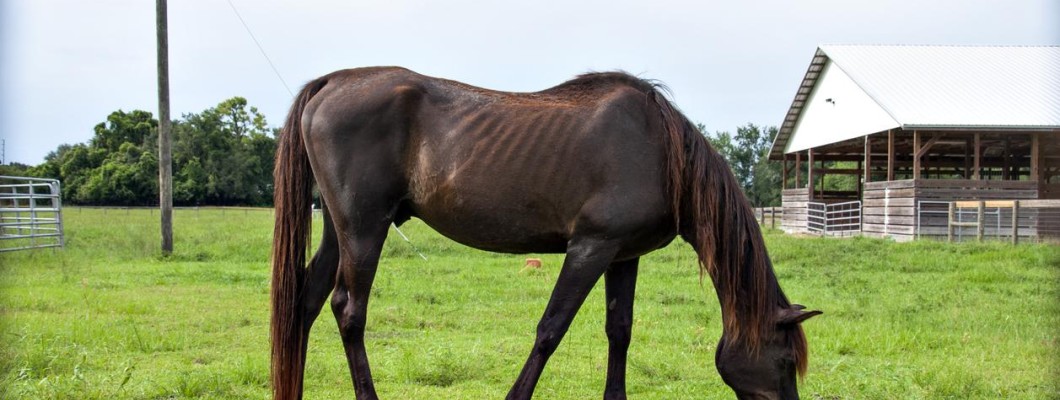
Feeding a horse for weight gain may initially seem challenging, especially when subtle changes in their body condition go unnoticed. Recognizing the need for weight gain is the first step in providing the necessary care. Equine nutritionist Sarah Ralston emphasizes that many thin horses suffer from "agroceroisis" – a lack of groceries :)). To address this, understanding the reasons behind weight loss is crucial before formulating a plan for weight gain.
Why Horses Lose Weight:
1. Illness:
Weight loss can be a symptom of underlying diseases. Consult with a veterinarian to rule out illnesses, checking liver and kidney function, and screening for chronic infections. Parasite loads can also contribute to weight loss, emphasizing the importance of regular deworming.
2. Dental Issues:
Dental problems can hinder proper chewing and digestion. Routine dental exams are essential to address issues such as uneven wear, cracked teeth, or infections, ensuring the horse can eat comfortably.
3. Social Problems:
Horses in stable herds may face social hierarchies that lead to lower-ranking individuals being chased away from food sources. Consider providing a separate feeding area for the affected horse or distributing hay strategically to ensure access for all.
4. Personality:
Some horses may be easily distracted or picky eaters, impacting their meal focus. Adjust feeding routines, consider quieter locations, and experiment with various forage types or forms to cater to individual preferences.
5. Environmental Conditions:
Weather extremes, both hot and cold, can affect a horse's appetite. Provide appropriate shelter, blankets in cold weather, and cooling options in heat. Protecting against biting flies is crucial to prevent energy loss due to constant movement.
Getting Started with Weight Gain:
1. Identify and Address Underlying Issues:
Work closely with a veterinarian to determine the cause of weight loss and address any health concerns or chronic pain.
2. Establish a Baseline:
Accurately measure and record the horse's weight and current dietary intake. Use photographs to supplement records and aid in monitoring changes over time.
3. Increase Forage Intake:
Gradually increase the horse's current forage ration to at least 2.5% of its desired body weight. Opt for high-quality hay, considering supplementation with alfalfa or beet pulp for added calories.
4. Add Healthy Fats:
Introduce fats gradually to boost calorie intake. Vegetable oil, rice bran, or commercial supplements can be added to the diet. Monitor for signs of digestive issues and adjust accordingly.
5. Incorporate Concentrates Wisely:
Choose concentrates formulated for the horse's life stage and activity level. Introduce concentrates slowly, following feeding instructions. Never exceed 0.5% of the horse's body weight in a single meal.
6. Moderate Exercise:
Implement a moderate exercise program to help the horse build muscle, stimulate appetite, and contribute to overall health.
7. Monitor Progress:
Track the horse's weight, body condition, and overall well-being regularly. Adjust the feeding program based on progress, and consult with an equine nutritionist if challenges persist.
Feeding horses for weight gain requires patience and a systematic approach. By understanding the specific needs of the horse, addressing underlying issues, and gradually adjusting the diet, you can help your horse achieve and maintain a healthy body condition. If uncertainties arise, seeking professional guidance ensures a tailored approach to the individual horse's requirements.
